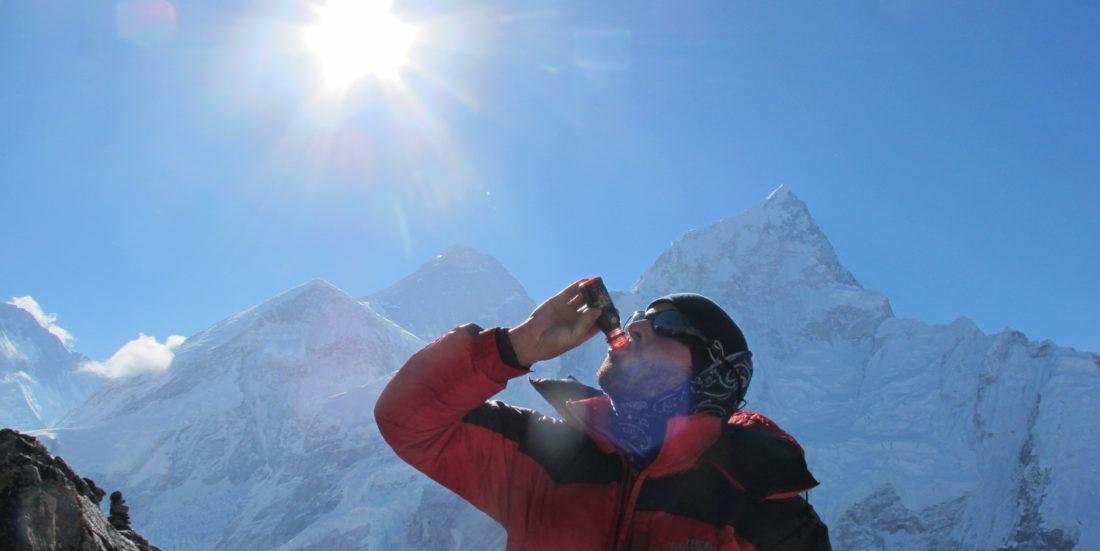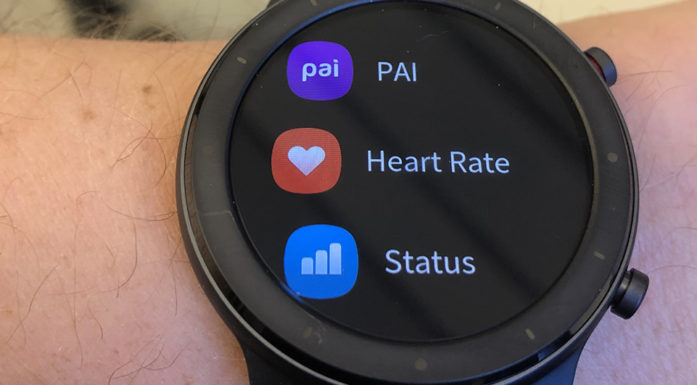“Beeting” high altitude sickness with beet juice
The human body isn’t made to operate at high altitude, but drinking beet juice may help the body acclimatize.
Ever since human beings first began climbing the world’s tallest mountains, they have struggled with a basic problem: altitude sickness, caused by lower air pressures which affect the ability of our bodies to take up oxygen. Or, as actor Jason Clarke says in his role as the climbing guide Rob Hall in the recently released movie, Everest, “Human beings simply aren’t built to function at the cruising altitude of a 747.”
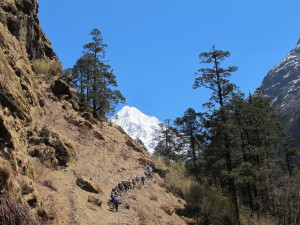
Mountain trekkers often use the hike into the Himalaya as a way to acclimatize to high altitudes. Here, researchers hike in the Rolwaling Valley in Nepal. Photo: Harald Engan, Mid Sweden University
How well humans tolerate high altitudes is highly variable, but the best way to minimize the risk of developing acute mountain sickness (AMS) is acclimatization, or simply spending enough time up high to allow the body to make adjustments to lower oxygen levels.
But what if you could help your body acclimatize more quickly and thoroughly with the help of a natural substance – like beet juice? A team of Norwegian and Swedish researchers decided to see how nitrate-rich beet juice might affect acclimatization on a 39-day expedition to Kathmandu and at 3700 metres in the Rolwaling Valley, Nepal.
Nitric oxide key
One aspect of successful acclimatization is that the blood vessels are able to deliver enough oxygen throughout the body. But normal blood vessel function depends on the body’s ability to naturally produce a compound called nitric oxide (NO).
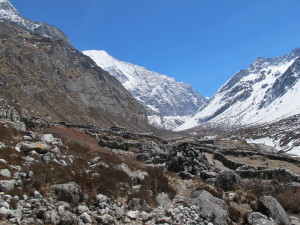
The research team conducted their highest set of measurements in Na, one of the highest altitude Sherpa villages, which is at 4200 metres. Photo: Harald Engan, Mid Sweden University.
In healthy people at sea level, production of adequate amounts of NO is not a problem, but with the reduced oxygen availability at high altitude it is a challenge, simply because natural NO production requires oxygen.
But the body has a “back-up system” for NO production at altitude, and it is here that beet juice can help. The secret ingredient in beet juice is high levels of nitrate, which the body can then convert to NO.
- You might also like: Uncovering the secrets of immune system invaders
Blood vessels work better
Previous research has shown that blood vessels tend to contract at high altitude, so researchers decided to see if they could improve blood vessel function at high altitude simply by having test subjects drink beet juice. They measured blood vessel function with a standard test of arterial endothelial function, a flow-mediated dilatation test (FMD) that uses ultrasound.
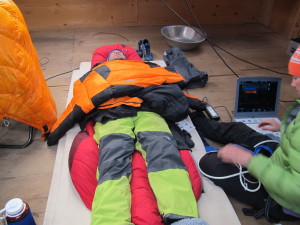
Researchers measured “flow-mediated dilation” of blood vessels using ultrasound three hours after study subjects drank beet juice, or the placebo beet juice. Photo: Harald Engan, Mid Sweden University
In a study recently published in Nitric Oxide: Biology and Chemistry, the researchers showed that consumption of organic nitrate-rich beet juice restored reduced blood vessel function at high altitude.
The researchers behind the study are from the K.G. Jebsen Center for Exercise in Medicine – Cardiac Exercise Research Group (CERG) at the Norwegian University of Science and Technology (NTNU) and the Environmental Physiology Group at Mid Sweden University in Östersund, Sweden.
- You might also like: No one wants to foot the bill for new antibiotics
First-ever study
The researchers’ project is the first time anyone has studied if consumption of a nitrate-rich juice could have positive effects on blood vessel function at high altitude.
Both men and women were studied with ultrasound to check their blood vessel function, before and during the high altitude expedition. As expected, high altitude made blood vessels contract.
To test if beet juice could make the blood vessels relax again, the test subjects were investigated after drinking two types of beet juice with a 24-hour break between tests.
One of the juices contained high amounts of nitrate while the other type had no nitrate in it (placebo). Neither the study participants nor the researchers knew what type of beet juice each person drank before blood vessel function was measured, and the juices (nitrate-rich versus placebo) were given in a random order.
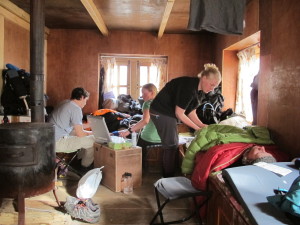
The researchers created a field laboratory for their measurements. Photo: Harald Engan, Mid Sweden University
The study showed that beet juice with high amounts of nitrate made the blood vessels relax and return to normal function, while beet juice with no nitrate (the placebo) did not have any effect.
“Next time you plan a trip at high altitude, maybe it is worth carrying a bottle of beet juice in your backpack,” said the study’s corresponding author, Svein Erik Gaustad, from NTNU’s CERG. “It may be the extra boost your body needs to deliver enough oxygen to your tired muscles and keep you healthy when you are climbing a high mountain.”
Reference: Acute dietary nitrate supplementation improves arterial endothelial function at high altitude: A double-blinded randomized controlled cross over study. Emily Bakker, Harald Engan, Alexander Patrician, Erika Schagatay, Trine Karlsen, Ulrik Wisløff, Svein Erik Gaustad. Nitric Oxide. Vol. 50, 15 November 2015,pp 58–64. doi:10.1016/j.niox.2015.08.006
